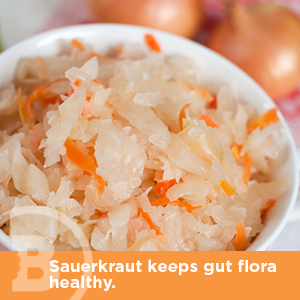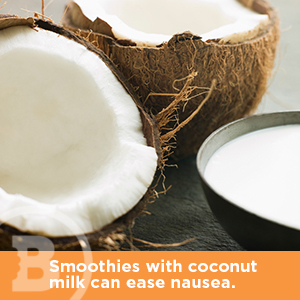Hey everyone! This week's installment of the Troubleshooting your Digestive Issues series is written by a paleo Registered Midwife, Meghanne Reburn. I figured it's best to leave this topic to her, since she's an expert – enjoy! – Diane
![]()
Pregnancy can be an all around awesome time a woman’s life. I always find it magical to watch the body change, as it grows a new little person. Unfortunately, some of the hormonal adaptations during pregnancy can wreak havoc on your digestive system, causing a plethora of annoying discomforts.
In this post, I’ll explore three of the most common gastrointestinal problems women experience during pregnancy and offer some natural paleo-friendly solutions to these annoying problems.
Constipation

Yup, I’m going to start by talking about poop! It’s a common problem, with around 40% of women experiencing constipation at some point during their pregnancy. Pregnancy related constipation occurs because your body produces more of the hormone progesterone. Progesterone’s main job during pregnancy is to act as a smooth muscle relaxant.
From an evolutionary perspective, having extra progesterone when growing a baby is a really good thing. Ensuring that the muscular uterus is chilled-out by the mellowing effects of progesterone helps your body maintain the pregnancy and prevent you from going into premature labour.
Now, back to your poop…
Your bowel normally moves stool and waste products along through a process known as peristalsis. This is when the muscles that line the bowel contract and relax in a rippling, wave-like motion. The pregnancy mediated increase in progesterone makes it more difficult for the bowel muscles to contract, thus making it harder to move stool along. Contrary to what your mom may have told you, pregnancy related constipation isn’t caused by lack of dietary fiber. In fact, increasing your fiber intake with bulk causing substances, such as, flax seeds or psyillium may actually make the problem worse!
Here are a few suggestions that may help get things moving:
 A clean Paleo diet, free of refined and processed foods, helps your bowels function most efficiently.
A clean Paleo diet, free of refined and processed foods, helps your bowels function most efficiently.- Drink lots of water to keep stools soft and do some gentle exercise to help stimulate peristalsis. Yoga, walking or hiking are ideal exercises.
- Warm drinks can help kick start a sluggish bowel. Try drinking a glass of warmed prune juice; it has worked its magic for many of my clients.
- Magnesium or Vitamin C supplements aid in drawing extra water into your bowels and stimulate peristalsis. A supplement like Natural Calm is an easily absorbed form of magnesium and makes a tasty evening drink.
- Try not to strain when on the toilet (it can cause hemorrhoids) and consider using a squatty potty to optimize the antorectal angle.
- Healthy gut flora can also help. Consider taking a high quality probiotic. Include fermented foods like sauerkraut, kimchi and grassfed yogurt into your diet. This recipe for fermented yams is a favourite of my clients
- Check out your supplement regime. Are you taking iron? If so, are you doing so because you’re clinically anemic? Iron supplements can be terribly constipating. If your following a healthy paleo diet full of iron rich foods such as liver, your supplement may not be necessary. Talk to your midwife or physician.
Heartburn
Heartburn is another common discomfort is also caused by our friend, progesterone. This time progesterone’s muscle “chillaxing” effects work on your esophageal sphincter, the muscle at the top of your stomach that holds your stomach acid in place. When this muscle relaxes, the acid that is naturally present in your stomach can be forced up and into your esophagus, causing painful heartburn.
It’s important to understand that you’re not over producing acid in your stomach, you’re just having a hard time keeping it in the right place! Most women seem to complain of heartburn during the second and third trimesters as your growing baby is displacing your stomach upwards and literally squeezing acid up and into the ‘discomfort zone’.
I generally don’t encourage the use of antacids or acid reducing medications or supplements. Reducing your stomach acid will only do you a digestive disservice by causing sub-optimal digestion and reduced nutrient assimilation.
Instead, try these simple suggestions:
- Eat smaller meals that are nutrient and calorie dense
- Eat slowly and chew your food well
 Avoid drinking while eating. Excess liquid just takes up space. Sip water, herbal teas between meals. Peppermint or ginger teas are ideal and will help to soothe your digestive system.
Avoid drinking while eating. Excess liquid just takes up space. Sip water, herbal teas between meals. Peppermint or ginger teas are ideal and will help to soothe your digestive system.- Stay upright after meals. Don’t hit the couch or go to bed after eating! This is a great time to do a sitting mediation, which will also stimulate your parasympathetic nervous system (aka your ‘rest and digest’ system.)
- Sleep with your torso elevated by a tower of pillows
- Wear loose fitting clothing
- Keep a diet journal. If you notice that certain foods are causing your heartburn to flare up, simply avoid them.
Nausea and Food Aversions
Up to 90% of women experience some form of food aversion, nausea or vomiting during their pregnancy. Only 1:5000 will experience nausea and vomiting that becomes a clinical health risk, but for the vast majority of women, nausea and food aversions are limited to the first trimester and are manageable with easy adaptations.
By far the most common food aversion women experience is aversion to proteins. From an evolutionary perspective, this makes perfect sense. In fact, evolutionary biologist, Margie Profet, proposes that nausea during pregnancy evolved as a protection against toxins and other dangerous substances that could harm the developing embryo [1]. In ancestral times, meats aka proteins had greatest chance of harboring bacteria and parasites. In addition to protein aversion, my clients have also noted food aversions to spicy and smoked foods, which is an interesting observation, as the flavors in these foods can easily mask the taste and smell of meat turned bad. The body is so SMART!
I hear from women all the time who have been following a Paleo diet, rich in quality protein sources. Most of them find this new aversion to protein troubling and worry about possible malnutrition during this period. My first word of advice is don’t worry! Simply focus your attention on food QUALITY rather than stress about calorie levels or macronutrient percentages. You only need 200 extra calories during pregnancy, which is a far cry from the common belief that you are ‘eating for two’. It’s really about 1.1. Your body is smart and produces certain hormones that actually make it easier to acquire and store nutrients from your foods during pregnancy. Your baby will get what it needs to grow, and your hunger will return in a few weeks so just chill and do your best.
Nausea tends to be exacerbated when our blood sugars get low. During pregnancy your blood sugars tend to run on the high side in order to ensure a good supply of energy to your growing baby, so nausea can also be seen as a signal that your baby needs more fuel. It’s important to not let yourself get too hungry and when you do eat, choose something lower on the glycemic index with lots of nutrient dense fats.
Here are some foods that seem to be better tolerated during the first trimester:
- Baked yams with grass-fed butter or ghee
- Women tend to do well with creamy textures in the first trimester; things like avocado puddings, grass-fed full fat yogurt or cottage cheese may be good alternatives. Don’t do dairy? Try this great coconut milk based cottage cheese
- Smoothies with lots of full fat coconut milk or, berries, greens and a bit of gelatin
- Pasture raised scrambled eggs if tolerated—the more yolks, the better.
 Bone broth
Bone broth- If you’re desperate and are considering adding grains back into your diet, try white rice and combine it with avocado or grass-fed butter.
- Remember to take your supplements of fermented cod liver oil
- Taking a Vitamin B6 supplement along with some ginger root has been shown to be effective in reducing nausea.
Give these tips a try, do your best by sticking to a clean Paleo diet and remember to RELAX! So much of how our gut’s function has to do with how we manage stress! A little bit of chill time can go a long way.
Parts in this Series:
Part 1: Signs & Symptoms of Digestive Upset
Part 2: How to Improve Overall Digestion Function
Part 3: Specific Recommendations for Constipation & Diarrhea
Part 4: Tips for Common Digestive Issues in Pregnancy
Sources:
[1] Profet, Margie (1992). “Pregnancy Sickness as Adaptation: A Deterrent to Maternal Ingestion of Teratogens”. In Barkow, Jerome; Cosmides; Tooby, Leda. The Adapted Mind: Evolutionary Psychology and the Generation of Culture. Oxford University Press.
![]()
About the author:
 Meghanne Reburn is a practicing Registered Midwife with a BScH (Hons) in Midwifery and a special interest in Paleo/Primal nutrition and lifestyle. Meghanne has delivered hundreds of babies both at home and in hospital and has additional training in both naturopathic and homeopathic medicine. She takes an evolutionary approach to her practice, believing that when properly cared for, the body has innate wisdom to care for and heal itself.
Meghanne Reburn is a practicing Registered Midwife with a BScH (Hons) in Midwifery and a special interest in Paleo/Primal nutrition and lifestyle. Meghanne has delivered hundreds of babies both at home and in hospital and has additional training in both naturopathic and homeopathic medicine. She takes an evolutionary approach to her practice, believing that when properly cared for, the body has innate wisdom to care for and heal itself.
Meghanne spent her formative years living and working amongst the Canadian Rocky Mountains and is an avid backcountry skier, climber and trail runner. In 2010, friends introduced her to the Paleo diet. With a history of gluten intolerance, going Paleo was an easy transition. After giving up all processed ‘gluten free goodies’ and grains she noticed almost instant improvements to her health, athletic performance and overall wellbeing. Meghanne became a member of the Weston. A. Price Foundation and took it upon herself to learn how the Paleo diet could help optimize fertility and support women during pregnancy and breastfeeding.
Meghanne has a new blog called CaveGirl Plus One, where she writes about Paleo friendly pregnancy topics and plans to offer private nutrition and lifestyle counseling focused around woman in their childbearing years.


Comments 5
Love this blog series! The only thing that I would add is that peppermint tea can actually cause the esophageal sphincter to relax. Its one of the foods that people with GERD/acid reflux should avoid, so if a pregnant woman is experiencing GERD they should try other flavored teas.
UGh, this post is about 11 months too late for me! (my son is two months old) Definitely had a lot of ‘Aha’ moments reading this!
Ahh, this is awesome – makes so much sense! I’ve actually found that flax seeds and flax oil help a lot with digestive issues.
Katie 🙂
Im curious…. my problem is not constipation… my problem is actually my food digesting too quickly where only a hour or two after eating i feel sick and like i havent eaten in days… please feel free to email me with any assistance, it will be much appreciated ‘[email protected]’
Author
I recommend contacting a medical doctor about this.